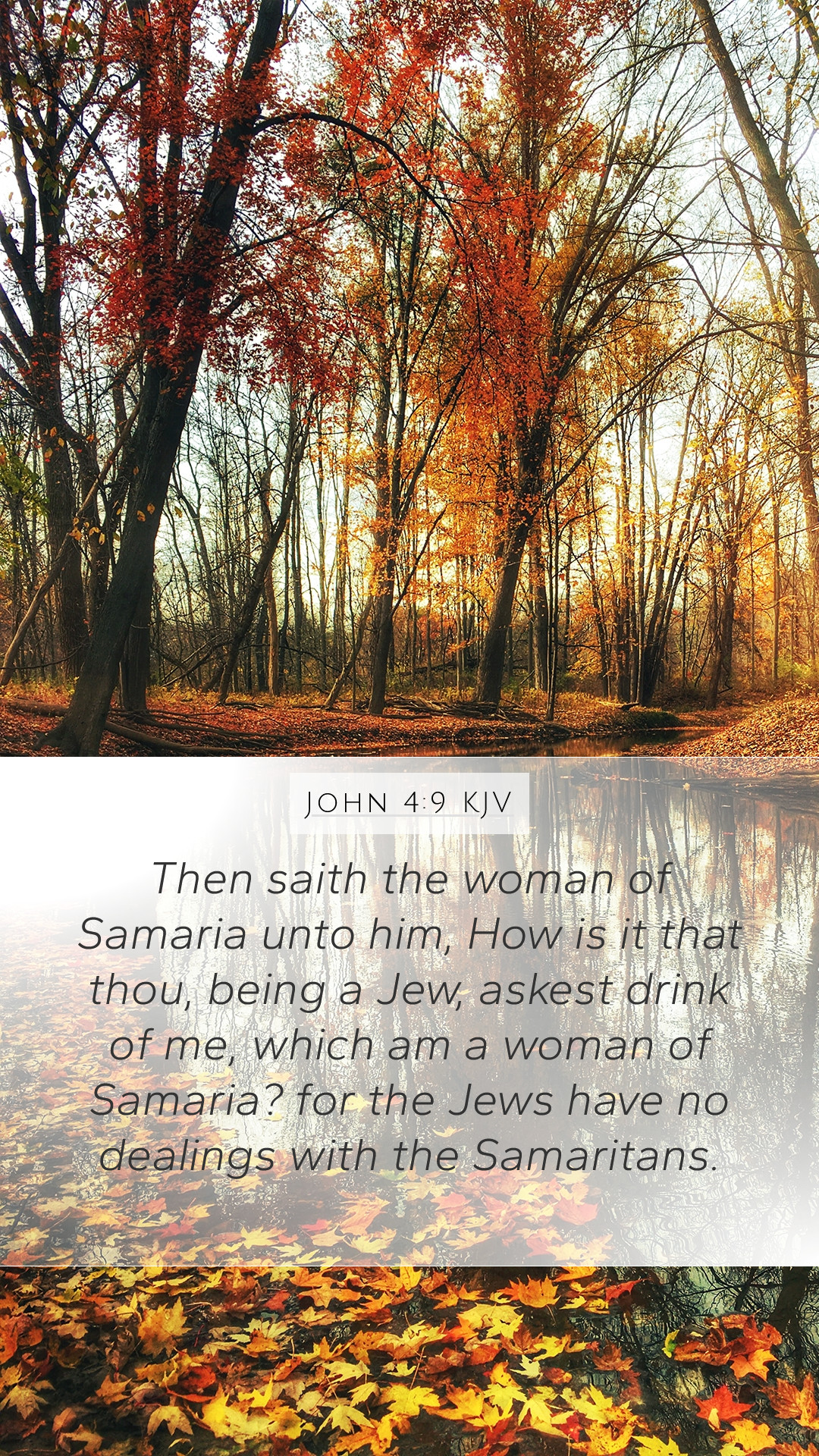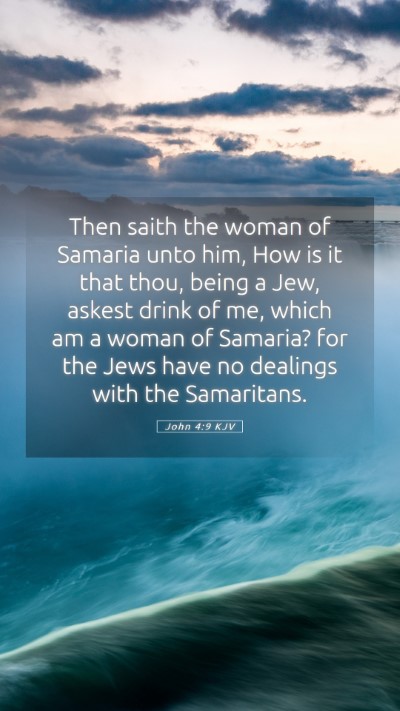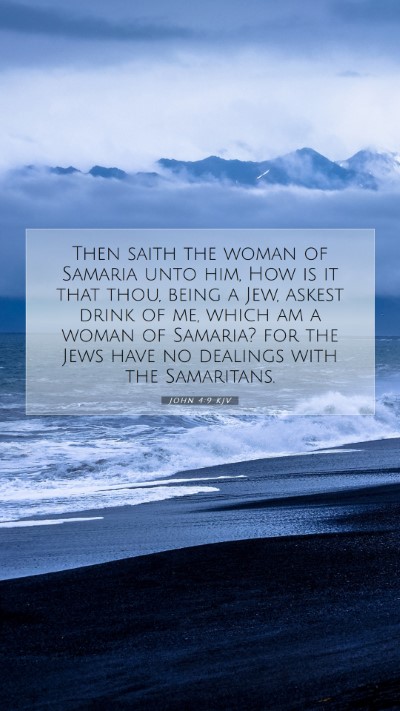Understanding John 4:9
The Bible verse John 4:9 states:
"Then saith the woman of Samaria unto him, How is it that thou, being a Jew, askest drink of me, which am a woman of Samaria? for the Jews have no dealings with the Samaritans."
This verse captures a poignant moment between Jesus and a Samaritan woman. Below, we explore the insights from public domain commentaries to provide a comprehensive understanding of the verse.
Context and Background
In the narrative leading up to this encounter, Jesus, traveling through Samaria, stops at Jacob's well where he meets a Samaritan woman. This dialogue unfolds significant cultural and theological implications. The tension between Jews and Samaritans is historically rooted, making this interaction notable.
Commentary Insights
-
Matthew Henry:
Henry emphasizes the cultural divide evident in the woman's response. He notes that the Jews traditionally avoided contact with Samaritans, reflecting the deep-seated animosity between the two groups. His commentary highlights how this encounter symbolizes Jesus’ breaking of social norms, showcasing his mission to reach all people.
-
Albert Barnes:
Barnes elaborates on the woman’s surprise at Jesus' request for water. He explains that Jewish men typically did not engage with Samaritan women, especially in such a personal manner. Barnes points out the significance of Jesus, a Jew, approaching the woman, which challenges the prejudices of the time.
-
Adam Clarke:
Clarke interprets the woman’s question as both a challenge and a reflection of her bewilderment. He brings attention to the implications of Jesus’ request, noting that it foreshadows the spiritual teachings about "living water" that He would ultimately reveal. Clarke emphasizes the shift from physical need to spiritual revelation.
Theological Implications
This verse serves as a pivotal point in the Gospel of John, illustrating the extension of Jesus' ministry beyond the confines of Jewish culture. It signifies the inclusivity of the Gospel and speaks to themes such as:
- The breaking down of ethnic and cultural barriers.
- The acknowledgment of women in theological discourse.
- The preview of spiritual truths symbolized by water.
Application to Daily Life
For contemporary readers, John 4:9 invites reflection on personal biases and social barriers. It encourages individuals to consider:
- How do we engage with those from different backgrounds?
- Are we open to conversations that challenge our norms?
- How can we share spiritual truths with others, regardless of their background?
Related Cross References
- Luke 10:33-35 - The Good Samaritan parable highlights loving one's neighbor across cultural divides.
- John 7:35 - Addresses the location of the dispersed Jews which relates to cultural dialogue.
- Ephesians 2:14-16 - Speaks to Christ breaking down the wall of hostility between Jews and Gentiles.
Conclusion
In summarizing John 4:9, we see a powerful illustration of inclusivity and the breaking of societal norms by Jesus. This engagement not only emphasizes personal outreach but also foreshadows the radical inclusivity of the Gospel. Understanding the cultural, historical, and spiritual context enhances our Bible verse understanding and encourages thoughtful Bible study insights.
For those seeking deeper Bible verse commentary, utilizing various Bible study tools and resources can provide broader perspectives on such passages. Engaging in this online Bible study enriches our comprehension and application of Scripture in our lives.


